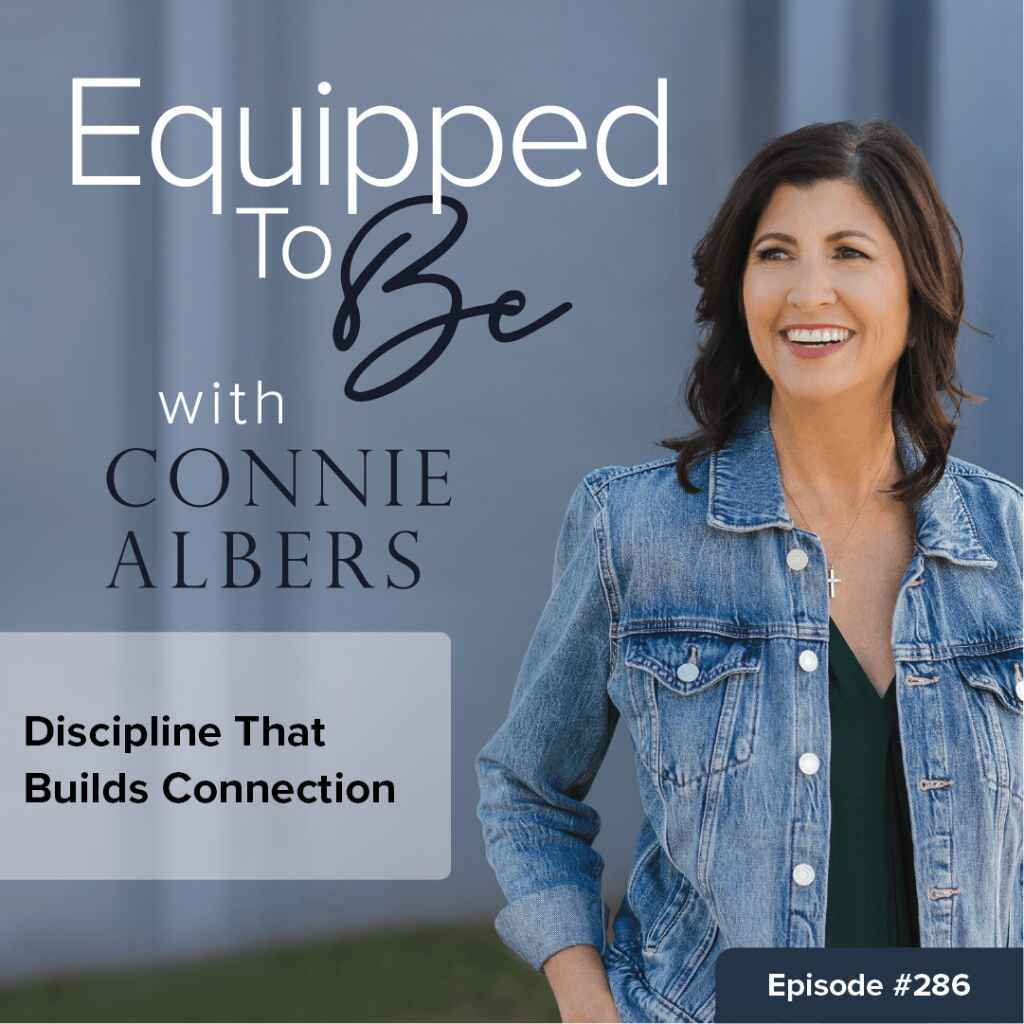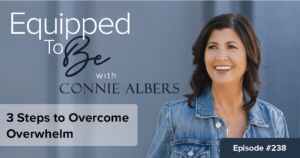Every parent has faced that heart-sinking moment when correction feels like it could cost connection. When your child’s eyes fill with tears, or their shoulders tense, and you wonder if you handled it the right way. You love your child deeply, yet you also know your role is to shape their character, not just soothe their feelings. Discipline that builds connection isn’t about harsh words, quick punishments, or controlling behavior; it’s about guiding your child’s heart with wisdom, consistency, and grace.
In a culture that often tells parents to “go easy” or avoid confrontation, discipline may feel uncomfortable, but it’s one of the most powerful ways to love your child well. This post will explore why discipline is essential for a child’s emotional and spiritual growth, and how to practice it in a way that strengthens trust, teaches self-control, and fosters a close relationship. Because when discipline is rooted in love, it doesn’t drive a wedge between you and your child; it builds a bridge that lasts a lifetime.

“Connect before you correct, coach before you command, and always discipline in love.” ~ Connie Albers
Why Parents Need to Discipline Their Child
Parenting without discipline is like trying to steer a ship without a rudder; you may drift for a while, but eventually, you’ll lose direction. Children don’t come into the world knowing how to manage their impulses, emotions, or choices. They depend on their parents to guide, correct, and shape their understanding of right and wrong. Discipline gives direction to love. It’s not about control or punishment; it’s about teaching children how to live wisely, treat others kindly, and make choices that lead to peace. Without it, confusion takes root, and both parent and child feel the strain.
When we understand how and why discipline matters, we begin to see it not as a burden but as a blessing —a way to nurture maturity, security, and respect in our children.
Love Requires Guidance
True love doesn’t look the other way; it steps in to guide and protect. Discipline isn’t about control—it’s an act of love that says, “I care too much to let you continue down a harmful path.” Children crave direction even when they resist it. They need to know that your “no” is grounded in love, not frustration.
When parents view discipline through the lens of love, correction becomes an expression of commitment rather than anger. It teaches that love is steady, even in correction.
Because love requires guidance, parents must see discipline as a sacred responsibility that builds wisdom, not resentment, leading us to understand its deeper purpose.
Discipline Builds Safety and Trusty
Boundaries may seem restrictive, but to a child, they create a sense of safety and predictability. When parents apply limits with calm consistency, children learn they can trust their parents to lead and protect them.
Boundaries say, “You can count on me to keep you safe, even when you push back.” Consistency is what transforms rules into reassurance.
As children learn that discipline is consistent and loving, they begin to trust their parents’ guidance, thus paving the way for a stronger relational connection.
Discipline Shapes Character and Self-Control
Every correction is an opportunity to teach your child wisdom, self-control, and accountability. Through thoughtful, firm instruction, children learn that actions have consequences and that self-discipline brings peace.
The goal of discipline isn’t perfect behavior; it’s developing character that stands strong under pressure. Over time, consistent discipline helps children become thoughtful, responsible adults who choose right even when no one is watching.
Once we understand the purpose of discipline, we can turn our attention to how we carry it out in a way that nurtures the heart rather than harms it.
How to Discipline Without Damaging the Relationship
Knowing that discipline is both necessary and loving gives us confidence, but how we discipline determines whether the relationship grows stronger or weaker. Children don’t just remember the rules; they remember how they were treated in the process. The goal isn’t perfect obedience, it’s lasting connection built on trust, respect, and love. Here’s how to discipline in a way that builds bridges instead of barriers.
Connect Before You Correct
Connection always comes before correction; a child who feels seen and understood is more willing to listen and change. Take a moment to pause, breathe, and get eye-level with your child. Naming their emotions—“You’re frustrated,” “You’re disappointed”—helps them feel safe even in correction.
Empathy doesn’t excuse poor behavior; it creates the bridge that allows your words to reach their heart. Children who feel connected are more open to instruction and less likely to rebel against it.
Once your child feels connected, their heart is open for listening. That’s when they shift from reaction to relationship.
Coach:Teach, Don’t Just Tell
Discipline is less about punishment and more about instruction. We want our child to understand why their choices matter. When you coach, you invite your child into growth: “Next time, what could you do differently?” This builds reflection and ownership.
By explaining motives and modeling grace, you teach emotional maturity, not mere compliance. Coaching is about equipping children with tools to handle the next challenge better.
As parents guide with wisdom, the next step, correction, becomes a natural continuation of teaching rather than a source of fear.
Correct with Clarity and Consistency
Correction only works when it’s clear, calm, and consistent. Children thrive on knowing where the lines are and what happens when those lines are crossed.
Implementing boundaries with kindness, without shaming or sarcasm, the child learns responsibility and respect.
When parents correct in love, children don’t just obey; they trust, and that trust becomes the foundation for a lasting connection.
Repair When You Miss the Mark
Even the best parents lose patience or say things they regret—but repair is where deep connection grows. When you humble yourself to apologize, you show your child that love is stronger than pride.
Your apology models emotional safety and teaches your child how relationships can recover from mistakes. Don’t underestimate the power of a sincere apology.
Repairing after failure not only restores peace but reminds your child that love always wins, tying discipline and connection together in a way that a child understands.
Closing Encouragement
Discipline done right doesn’t break hearts; it binds them closer. When love, boundaries, and grace work together, families grow in both respect and relationship. Discipline becomes not a moment of control, but a pathway to connection and trust.
Remember, the goal of parenting isn’t perfect behavior; it’s a strong relationship that reflects God’s love, truth, and grace in every correction. Proper behavior is fostered through how parents correct their child.
Sponsors, Related Shows, and Links
The following may contain affiliate links:
- Parenting Beyond the Rules: Raising Teens with Confidence and Joy by Connie Albers
Related Episodes
How to Connect with Connie
- Follow Connie Albers on Instagram | Facebook |X | Pinterest
- Learn more about Connie’s book, Parenting Beyond the Rules.
- Learn more about the Equipped To Be podcast
Subscribe to Equipped To Be
If you find this podcast helpful, please consider subscribing and leaving a review. It’s a great way to support the show and only takes a few seconds.


